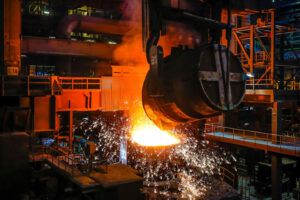Introduction
How much for money for living? The world of business in 2025 is filled with opportunities for entrepreneurs who are ready to step into industries that continue to thrive regardless of market fluctuations. From property management to food trucks, hotels to steel businesses, coffee shops to travel agencies, these sectors remain relevant and profitable because they meet essential human needs housing, food, hospitality, construction materials, beverages, and travel experiences.
Unlike short-lived trends, these industries have strong foundations that make them sustainable for long-term investments. Each comes with its own challenges, but with the right strategy, proper planning, and consistent effort, entrepreneurs can build profitable ventures. Let’s explore these businesses in detail, understand their profitability, and uncover how to establish them successfully in 2025.
Property Management Business
Why Property Management is Profitable
The demand for property management continues to rise as more people invest in real estate but don’t have the time to manage tenants, repairs, and daily operations. Landlords and real estate investors rely on property management companies to handle everything from rent collection to maintenance and tenant relations.
With urbanization and increasing rental markets, property management has become a service that landlords cannot ignore. The industry thrives in both residential and commercial real estate, offering steady income through management fees and commissions.
How to Start a Property Management Business

-
Legal Structure and Licensing – Obtain the proper licenses required in your region.
-
Market Research – Understand rental demands in your area.
-
Networking with Property Owners – Build partnerships with real estate investors and landlords.
-
Technology Integration – Use software like Buildium or AppFolio for efficient management.
-
Team Building – Hire maintenance staff, leasing agents, and accounting professionals.
Revenue Streams in Property Management
-
Monthly management fees (typically 8–12% of rental income).
-
Leasing fees for finding tenants.
-
Maintenance and repair coordination fees.
-
Additional services such as inspections and legal assistance.
Food Truck Business
Why Food Trucks Remain Popular
The food truck industry continues to flourish because of its low startup cost compared to restaurants and its ability to move to high-demand locations. People are always looking for affordable, delicious, and quick meals, and food trucks offer exactly that.
In 2025, food trucks are not just about fast food they include gourmet cuisines, vegan meals, fusion foods, and even specialty desserts. Their flexibility allows entrepreneurs to experiment with menus and test markets without the heavy expenses of owning a restaurant.
Steps to Start a Food Truck Business
-
Concept and Menu – Choose a unique food theme that attracts repeat customers.
-
Licensing and Permits – Health permits, food handling licenses, and parking permits.
-
Purchasing a Truck – Invest in a high-quality food truck equipped with kitchen essentials.
-
Location Strategy – Target busy areas like office districts, colleges, festivals, and events.
-
Marketing – Use social media to announce locations and engage with local communities.
Profitability of Food Trucks
The average food truck in the U.S. earns between $250,000–$500,000 annually depending on location and menu. By keeping overhead low and focusing on popular dishes, entrepreneurs can achieve high profit margins.
Hotel Business 
The Resilience of the Hotel Industry
Despite challenges from global events, the hotel business remains one of the most profitable ventures in the hospitality sector. Travel continues to grow in 2025, with both domestic and international tourism fueling demand for hotels. From budget accommodations to luxury resorts, hotels cater to different audiences, making it a versatile investment.
How to Start a Hotel Business
-
Choose the Market – Decide whether to invest in budget, boutique, or luxury hotels.
-
Location Selection – Tourist destinations, city centers, and business hubs work best.
-
Design and Construction – Create a comfortable and appealing environment.
-
Staffing and Training – Excellent customer service is essential for repeat business.
-
Technology Adoption – Use booking platforms, mobile apps, and AI-powered guest management systems.
Revenue Streams for Hotels
-
Room bookings
-
Restaurants and cafés inside the hotel
-
Conference and event hosting
-
Spa and wellness services
-
Tourism packages and guided tours
Steel Business in 2025
Why the Steel Industry is Profitable
Steel remains one of the most important materials in the global economy. It is used in almost every major industry construction, automotive, shipbuilding, manufacturing, energy, and infrastructure. In 2025, the demand for steel continues to rise as governments and private companies invest heavily in smart cities, renewable energy projects, electric vehicles, and industrial development.
What makes steel particularly attractive as a business is its consistent demand and wide application. Unlike seasonal businesses, steel is always needed. Whether for bridges, skyscrapers, pipelines, or household appliances, the steel industry ensures steady revenue opportunities.
Different Types of Steel Businesses
There are several ways to enter the steel business depending on your capital and expertise:
-
Steel Manufacturing Plant
-
Requires high investment.
-
Produces steel from raw materials like iron ore and coal.
-
Involves blast furnaces or electric arc furnaces.
-
-
Steel Fabrication
-
Medium investment.
-
Involves converting raw steel into products like beams, rods, sheets, or custom structures.
-
Useful in construction and industrial projects.
-
-
Steel Trading and Distribution
-
Lower investment compared to manufacturing.
-
Focuses on buying steel in bulk and selling it to contractors, factories, and construction companies.
-
Profitable if you build a reliable supply chain.
-
-
Steel Recycling Business
-
Eco-friendly and cost-effective.
-
Involves collecting scrap steel, melting, and repurposing it.
-
Increasingly popular due to sustainability trends.
-
How to Start a Steel Business 
-
Market Research – Study demand in your region: is there more need for construction steel, automotive parts, or industrial steel?
-
Business Model Selection – Decide if you want to be a manufacturer, distributor, or recycler.
-
Legal Permits and Licenses – Obtain environmental clearances, business licenses, and safety certifications.
-
Capital and Infrastructure – Manufacturing requires heavy investment, while trading can start with moderate capital.
-
Supply Chain Management – Build strong ties with raw material suppliers and transportation companies.
-
Skilled Workforce – Hire metallurgists, engineers, and skilled laborers.
-
Technology Integration – Use modern machinery and AI-powered systems for efficiency.
Challenges in the Steel Industry
-
High Initial Investment: Manufacturing plants require millions in setup costs.
-
Global Price Fluctuations: Steel prices depend on raw material availability and global trade policies.
-
Environmental Regulations: Steel production produces emissions, so compliance with green laws is necessary.
-
Competition: Both local and international companies dominate the market.
Profitability of Steel Businesses
Despite challenges, steel is considered a long-term profitable venture. The profit margins vary depending on the business model:
-
Manufacturing Plants: 8–15% margins due to high operating costs.
-
Fabrication Businesses: 15–25% margins by providing specialized products.
-
Trading and Distribution: 10–20% margins, with higher profitability if you establish strong local demand.
-
Recycling Plants: 20–30% margins due to lower raw material costs and growing eco-friendly demand.
Future of the Steel Business
The future of the steel industry lies in sustainability and innovation. Green steel, which is produced using renewable energy and emits less carbon, is becoming a global trend. Many companies are also investing in AI, robotics, and automation to improve efficiency and reduce costs.
In 2025 and beyond, entrepreneurs who adopt eco-friendly practices and diversify their offerings will gain a competitive edge.
Coffee Shop Business
Why Coffee Shops Are Evergreen
Coffee is one of the most consumed beverages worldwide, and coffee shops remain community hubs where people gather for work, study, or leisure. In 2025, the demand for high-quality, specialty coffee continues to grow as customers seek unique experiences beyond just caffeine.
How to Start a Coffee Shop
-
Choose the Concept – Specialty coffee, organic brews, or café-bakery combos.
-
Select a Location – Busy streets, campuses, and business districts.
-
Menu Development – Offer coffee, tea, snacks, and baked goods.
-
Interior Design – Create a cozy, Instagram-friendly atmosphere.
-
Marketing and Loyalty Programs – Reward systems and community engagement.
Profitability of Coffee Shops
A well-located coffee shop can generate $200,000–$500,000 annually. The business thrives on repeat customers and brand loyalty, making it one of the most reliable small business ventures.
Travel Agency Business
The Revival of Travel

After years of global restrictions, travel has made a full comeback. In 2025, people are prioritizing experiences over possessions, and travel agencies are capitalizing on this shift. From adventure tourism to luxury getaways, agencies help customers plan seamless trips.
How to Start a Travel Agency
-
Choose a Niche – Adventure travel, corporate travel, or budget trips.
-
Obtain Licenses and Certifications – IATA accreditation, local business licenses.
-
Build Partnerships – Collaborate with airlines, hotels, and tour operators.
-
Create an Online Presence – A strong website and social media marketing.
-
Offer Value-Added Services – Insurance, visa assistance, guided tours.
Profitability of Travel Agencies
Agencies earn commissions from bookings and partnerships with airlines and hotels. With the rise of customized travel experiences, agencies that specialize in niche markets are seeing higher profits.
FAQs
-
Which business is the easiest to start with low capital?
The food truck business requires lower capital compared to hotels or steel businesses. -
Is property management still profitable in 2025?
Yes, with the growing rental markets, property management remains in high demand. -
Do coffee shops still attract customers in a competitive market?
Yes, coffee culture continues to grow, especially specialty and premium cafés. -
What makes travel agencies profitable despite online booking platforms?
Customized packages and personal assistance give agencies an edge. -
Is the steel business suitable for small entrepreneurs?
It is more capital-intensive, but entrepreneurs can start with steel distribution instead of manufacturing.
Conclusion: The Future of Profitable Businesses in 2025
Across industries whether it’s property management, food trucks, hotels, steel businesses, coffee shops, or travel agencies one truth remains clear: these ventures succeed because they serve fundamental human needs. People need housing, food, travel experiences, infrastructure, and daily comfort, making these businesses both reliable and sustainable in 2025 and beyond.
Property management thrives on the increasing demand for rentals and real estate investments. With urbanization growing rapidly, property managers are essential for keeping operations smooth for landlords and tenants.
Food trucks remain one of the most affordable and flexible food businesses, giving entrepreneurs the chance to innovate with menus and reach customers directly. They adapt quickly to trends and remain profitable because everyone needs convenient, tasty food.
Hotels continue to shine in the hospitality industry, fueled by tourism and business travel. With technology-driven booking systems and personalized experiences, the hotel business has adapted to modern travelers’ expectations.
Steel businesses form the foundation of infrastructure, construction, and industry. Whether through manufacturing, fabrication, distribution, or recycling, steel remains indispensable, making it one of the strongest long-term investments.
Coffee shops thrive as community spaces and lifestyle brands. Beyond just serving coffee, they create experiences, making them a resilient business model with repeat customers and high brand loyalty. View
Travel agencies, despite online booking platforms, have proven their worth by offering tailored, stress-free travel solutions. From luxury getaways to adventure packages, they continue to attract customers seeking personalized experiences.
When comparing these businesses, some require high investment and infrastructure (hotels, steel plants), while others can be launched with lower capital and flexible models (food trucks, coffee shops, travel agencies). The key is to choose a business that aligns with your resources, interests, and long-term vision.
In 2025, success is less about following fads and more about investing in timeless industries that adapt with technology and consumer demand. Entrepreneurs who combine innovation, sustainability, and customer-centric strategies will not only thrive today but also secure growth for decades ahead. khow sites

